Check out our paper and code below 🚀
📄 Paper: arxiv.org/abs/2505.24671
🤖 Dataset: github.com/dayeonki/cul...
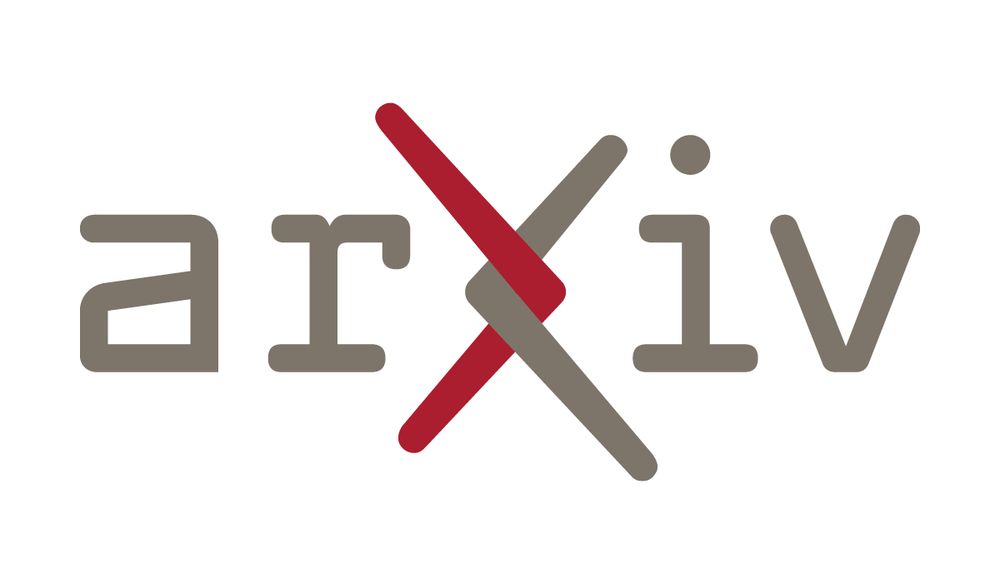
Check out our paper and code below 🚀
📄 Paper: arxiv.org/abs/2505.24671
🤖 Dataset: github.com/dayeonki/cul...
Some exciting future directions:
1️⃣ Assigning specific roles to represent diverse cultural perspectives
2️⃣ Discovering optimal strategies for multi-LLM collaboration
3️⃣ Designing better adjudication methods to resolve disagreements fairly 🤝
Some exciting future directions:
1️⃣ Assigning specific roles to represent diverse cultural perspectives
2️⃣ Discovering optimal strategies for multi-LLM collaboration
3️⃣ Designing better adjudication methods to resolve disagreements fairly 🤝
🫂 We measure cultural parity across diverse groups — and find that Multi-Agent Debate not only boosts average accuracy but also leads to more equitable cultural alignment 🌍
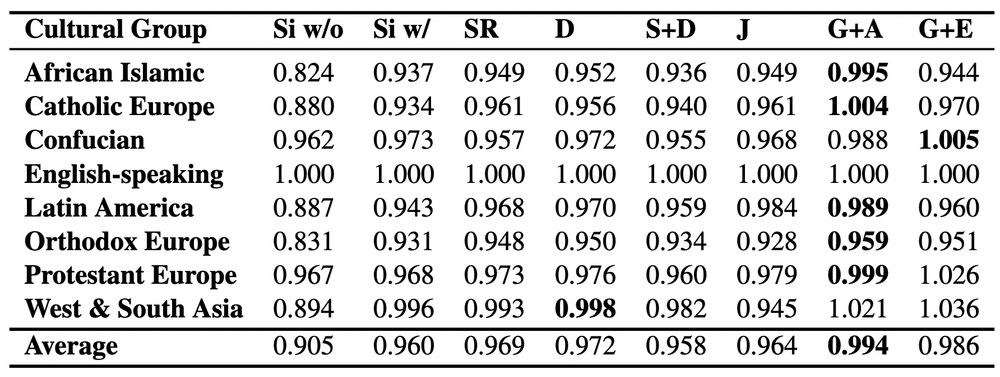
🫂 We measure cultural parity across diverse groups — and find that Multi-Agent Debate not only boosts average accuracy but also leads to more equitable cultural alignment 🌍
We track three phases of LLM behavior:
💗 Initial decision correctness
💚 Final decision correctness
💙 Judge’s decision correctness
✨ Multi-Agent Debate is most valuable when models initially disagree!

We track three phases of LLM behavior:
💗 Initial decision correctness
💚 Final decision correctness
💙 Judge’s decision correctness
✨ Multi-Agent Debate is most valuable when models initially disagree!
We find that:
🤯 Multi-Agent Debate lets smaller LLMs (7B) match the performance of much larger ones (27B)
🏆 Best combo? Gemma-2 9B + EXAONE-3 7B 💪
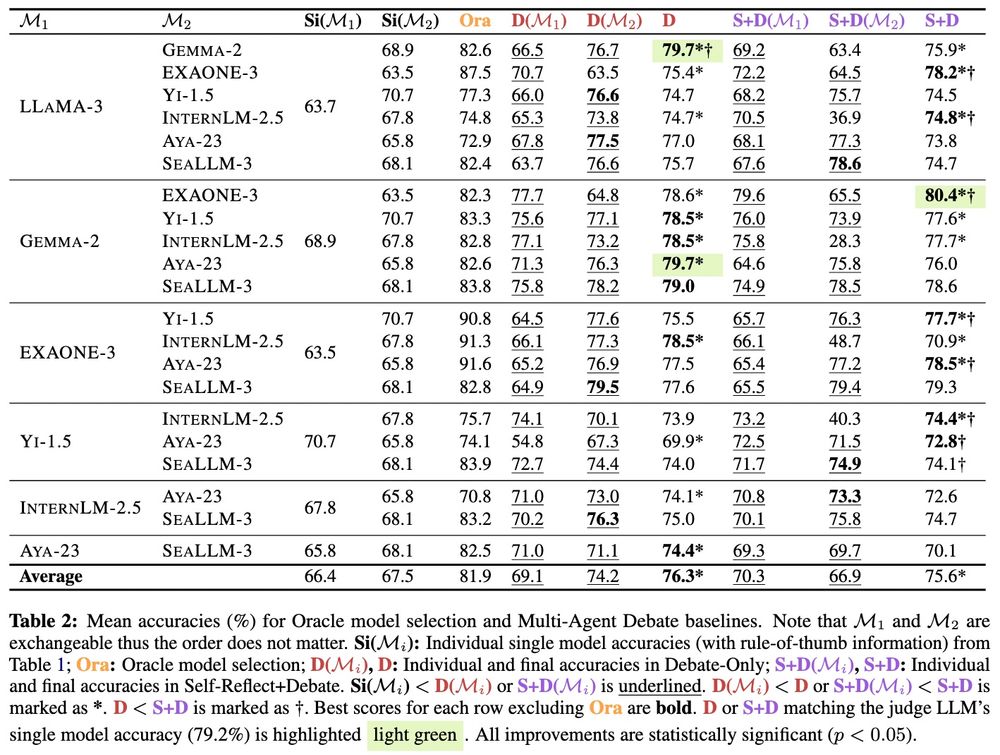
We find that:
🤯 Multi-Agent Debate lets smaller LLMs (7B) match the performance of much larger ones (27B)
🏆 Best combo? Gemma-2 9B + EXAONE-3 7B 💪
1️⃣ Cultural Contextualization: adding relevant rules-of-thumb for the target culture
2️⃣ Self-Reflection: evaluating and improve its own outputs
These serve as strong baselines before we introduce collaboration 🤝
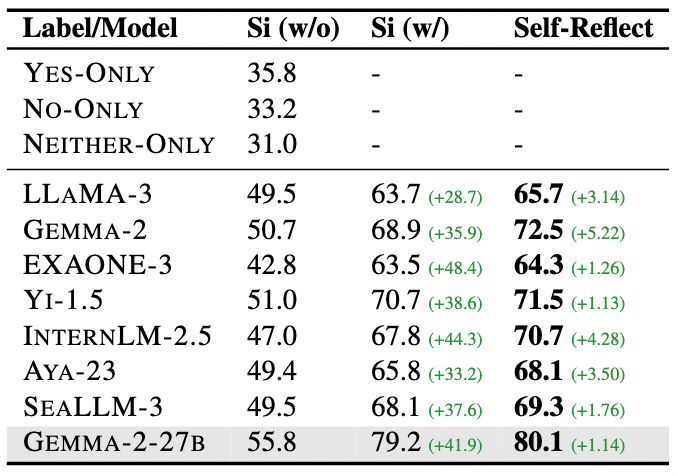
1️⃣ Cultural Contextualization: adding relevant rules-of-thumb for the target culture
2️⃣ Self-Reflection: evaluating and improve its own outputs
These serve as strong baselines before we introduce collaboration 🤝
Different LLMs bring complementary perspectives and reasoning paths, thanks to variations in:
💽 Training data
🧠 Alignment processes
🌐 Language and cultural coverage
We explore one common form of collaboration: debate.
Different LLMs bring complementary perspectives and reasoning paths, thanks to variations in:
💽 Training data
🧠 Alignment processes
🌐 Language and cultural coverage
We explore one common form of collaboration: debate.
We’d love for you to check it out 🚀
📄 Paper: arxiv.org/abs/2504.11582
🤖 Dataset: github.com/dayeonki/askqe

We’d love for you to check it out 🚀
📄 Paper: arxiv.org/abs/2504.11582
🤖 Dataset: github.com/dayeonki/askqe
Yes! It shows:
💁♀️ Stronger correlation with human judgments
✅ Better decision-making accuracy than standard QE metrics
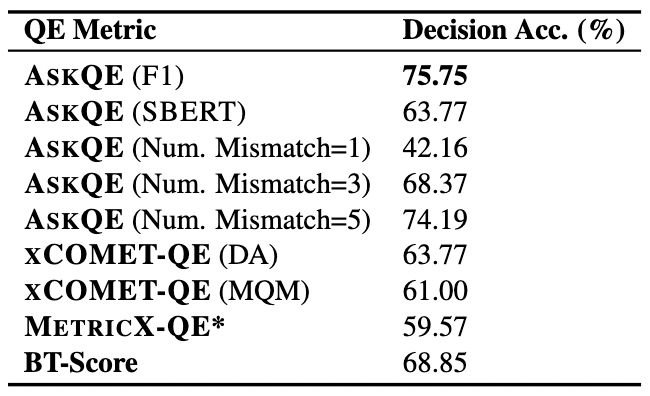
Yes! It shows:
💁♀️ Stronger correlation with human judgments
✅ Better decision-making accuracy than standard QE metrics
Most commonly:
📏 Extent — How many COVID-19 cases were reported today? (24.6%)
💡 Concept — What is another name for paracetamol? (23.6%)
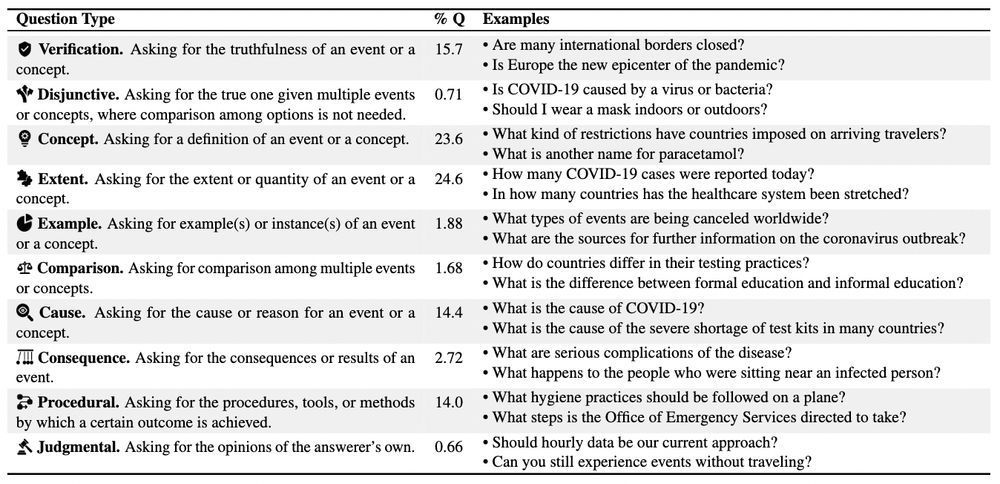
Most commonly:
📏 Extent — How many COVID-19 cases were reported today? (24.6%)
💡 Concept — What is another name for paracetamol? (23.6%)
📉 It effectively distinguishes minor to critical translation errors
👭 It aligns closely with established quality estimation (QE) metrics
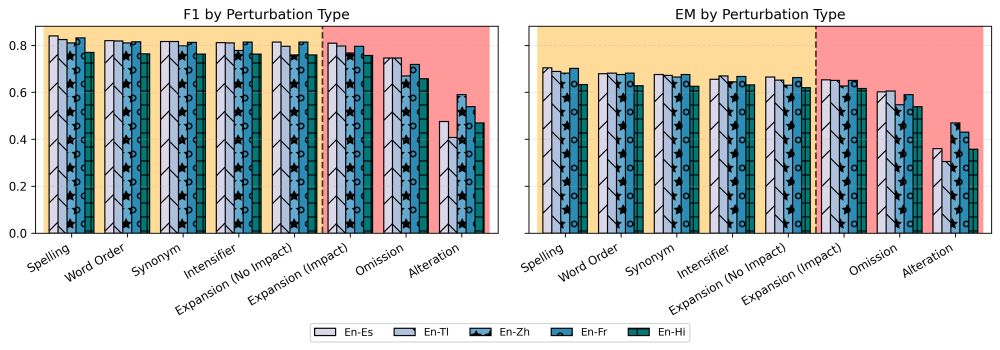

📉 It effectively distinguishes minor to critical translation errors
👭 It aligns closely with established quality estimation (QE) metrics
⚠️ Minor errors: spelling, word order, synonym, intensifier, expansion (no impact)
📛 Critical errors: expansion (impact), omission, alteration
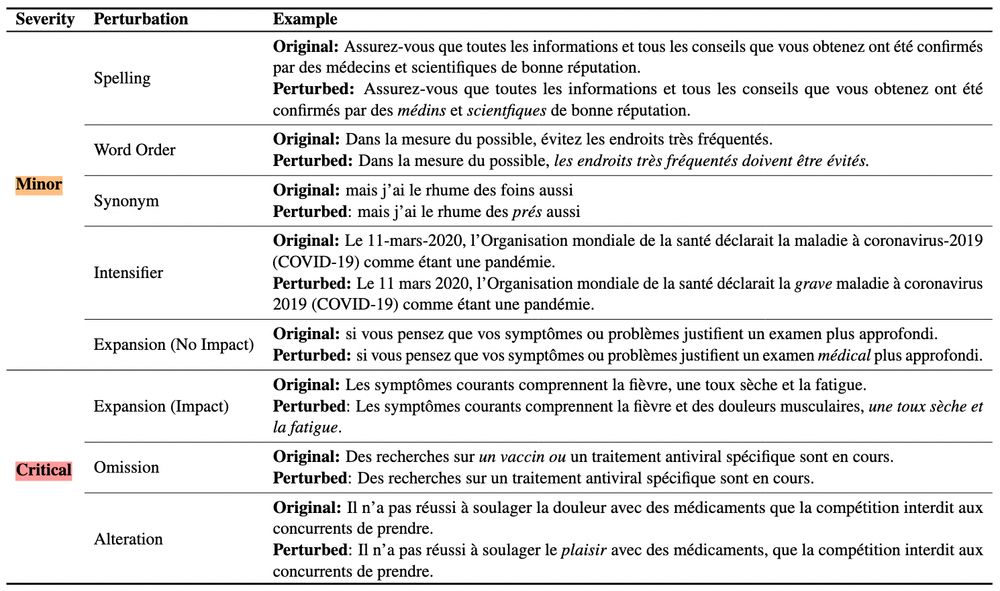
⚠️ Minor errors: spelling, word order, synonym, intensifier, expansion (no impact)
📛 Critical errors: expansion (impact), omission, alteration
❓ Question Generation (QG): conditioned on the source + its entailed facts
❕ Question Answering (QA): based on the source and backtranslated MT
If the answers don’t match... there's likely an error ⚠️

❓ Question Generation (QG): conditioned on the source + its entailed facts
❕ Question Answering (QA): based on the source and backtranslated MT
If the answers don’t match... there's likely an error ⚠️
1️⃣ Provides functional explanations of MT quality
2️⃣ Users can weigh the evidence based on their own judgment
3️⃣ Aligns well with real-world cross-lingual communication strategies 🌐
1️⃣ Provides functional explanations of MT quality
2️⃣ Users can weigh the evidence based on their own judgment
3️⃣ Aligns well with real-world cross-lingual communication strategies 🌐
Please check out our paper accepted to NAACL 2025 🚀
📄 Paper: arxiv.org/abs/2502.16682
🤖 Code: github.com/dayeonki/rew...

Please check out our paper accepted to NAACL 2025 🚀
📄 Paper: arxiv.org/abs/2502.16682
🤖 Code: github.com/dayeonki/rew...
As LLM-based writing assistants grow, we encourage future work on interactive, rewriting-based approaches to MT 🫡
As LLM-based writing assistants grow, we encourage future work on interactive, rewriting-based approaches to MT 🫡
Yes! They rated these to be:
📝 More contextually appropriate
👁️ Easier to read
🤗 More comprehensible
compared to translations of original inputs!

Yes! They rated these to be:
📝 More contextually appropriate
👁️ Easier to read
🤗 More comprehensible
compared to translations of original inputs!
Here are 3 key findings:
1️⃣ Better translatability trades-off meaning preservation
2️⃣ Simplification boosts both input & output readability 📖
3️⃣ Input rewriting > Output post-editing 🤯

Here are 3 key findings:
1️⃣ Better translatability trades-off meaning preservation
2️⃣ Simplification boosts both input & output readability 📖
3️⃣ Input rewriting > Output post-editing 🤯
Yes! By selecting rewrites based on translatability scores at inference time, we outperform all other methods 🔥
Yes! By selecting rewrites based on translatability scores at inference time, we outperform all other methods 🔥

